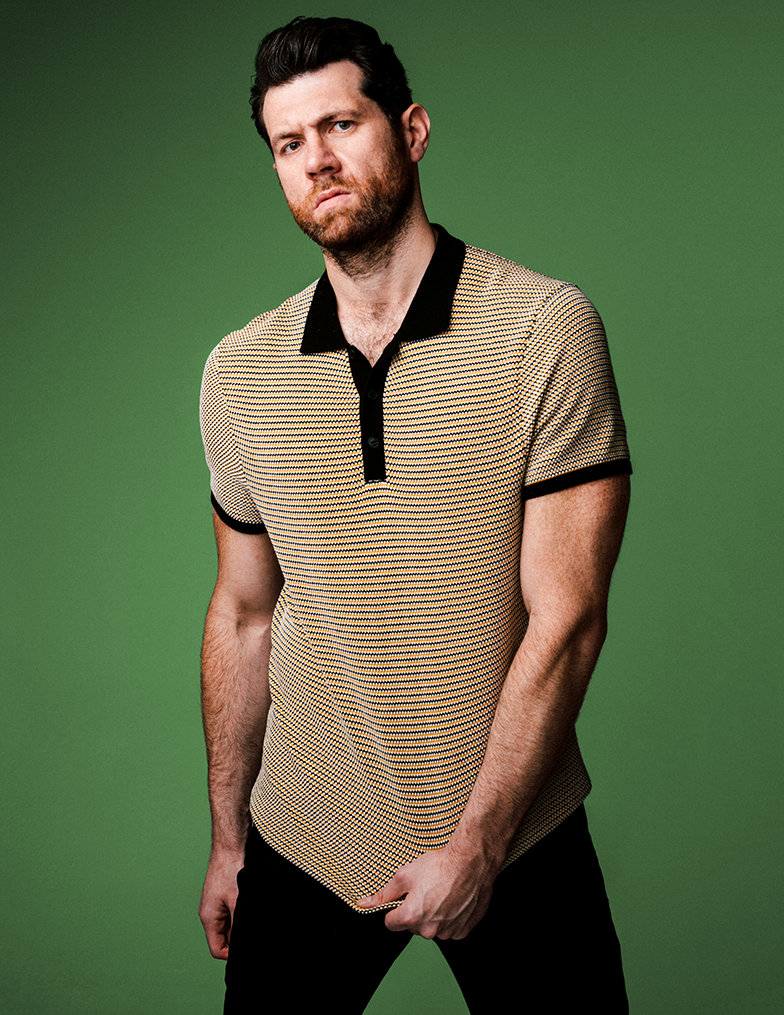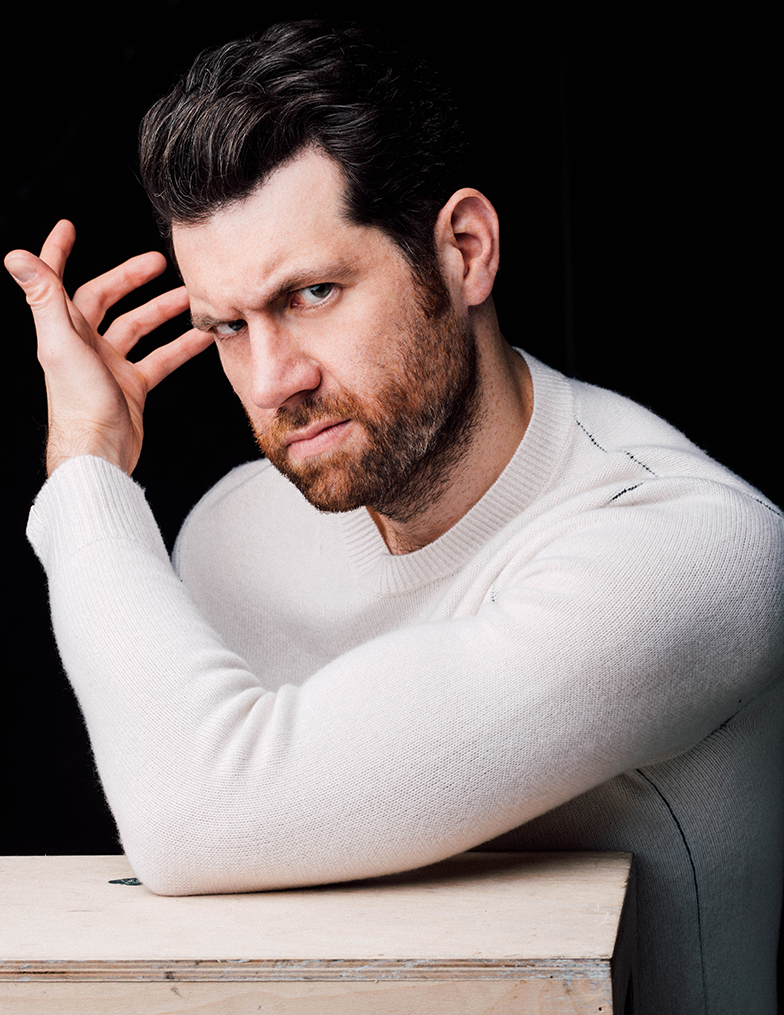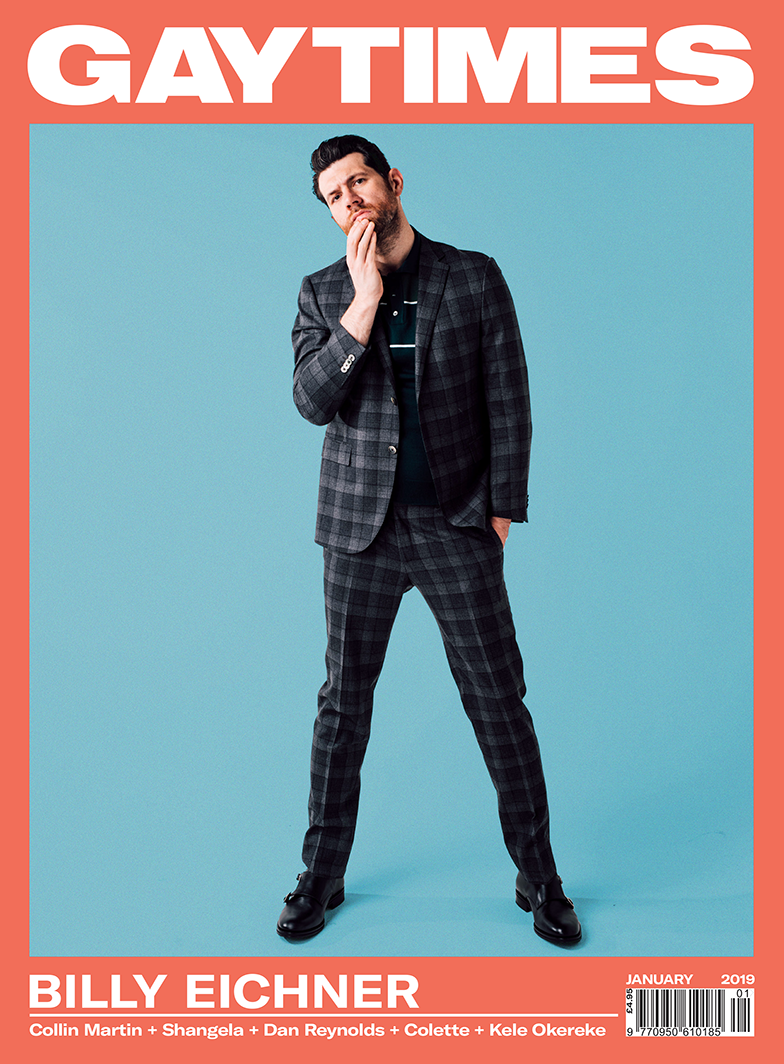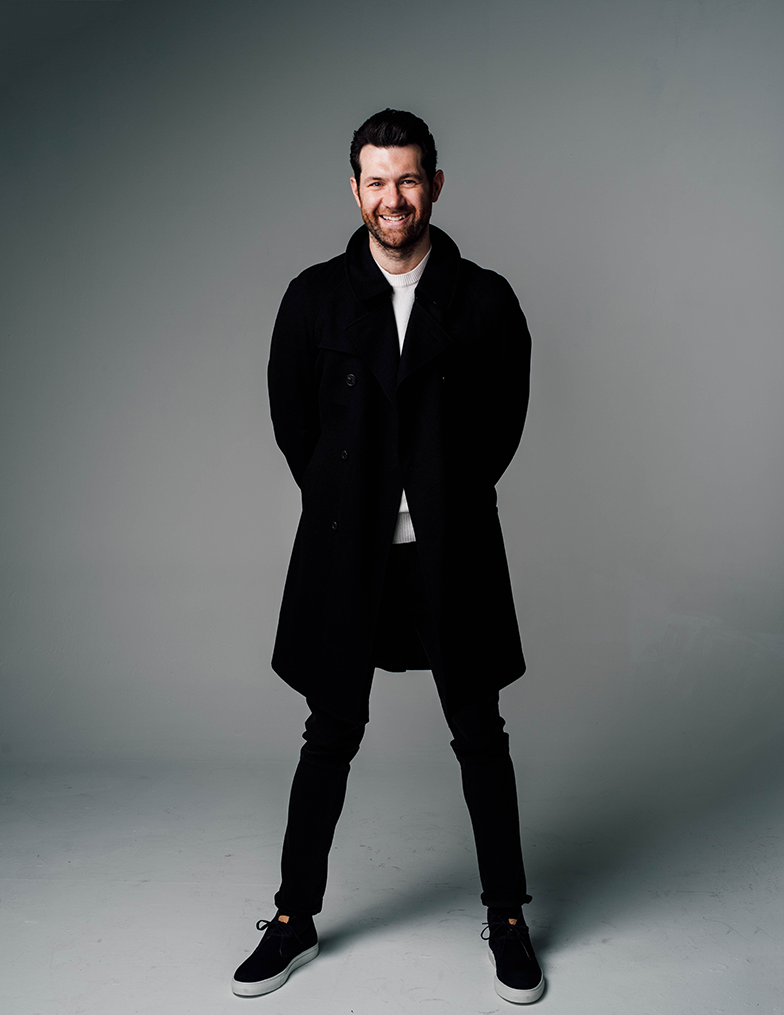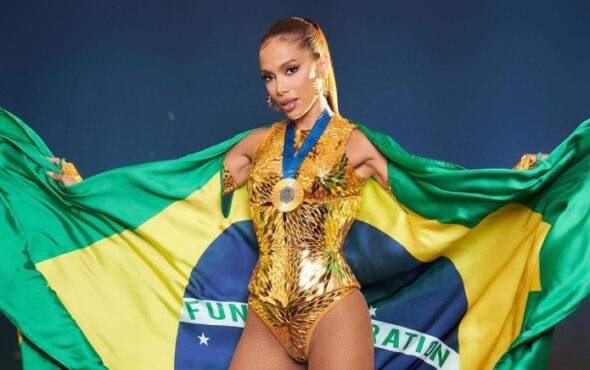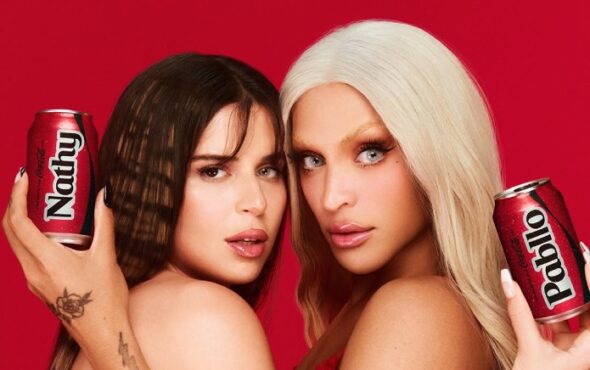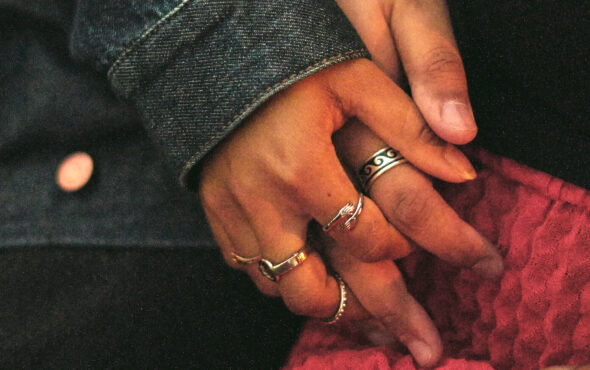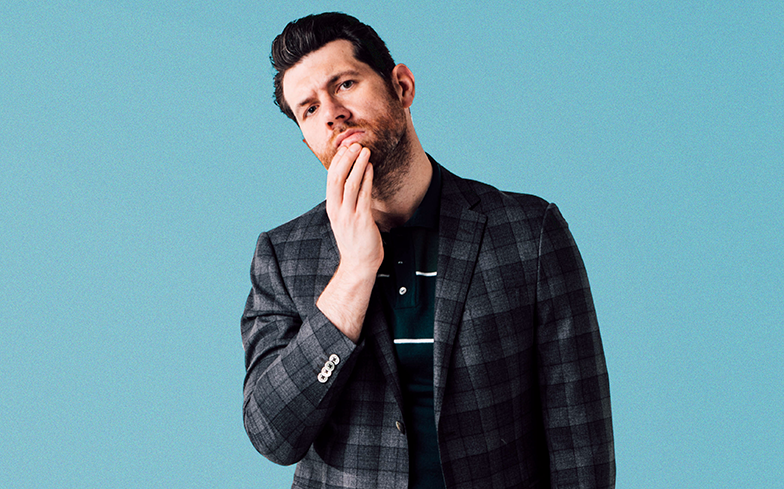
“I wanted to speak up because I’m an openly gay man in America,” Billy Eichner tells us of the recent controversy surrounding historic homophobic tweets from comedian Kevin Hart, which resurfaced shortly after he was announced as host for the 91st Academy Awards.
“I’ve always felt a real kinship from a young age with my fellow gay people and my community, the LGBTQ community at large. I always feel the need to speak up and demand respect when we’re not getting the respect that I think we deserve.”
The tweets in question saw Hart use several homophobic slurs – including the F word – and ‘joke’ that he would break his daughter’s dollhouse ‘over his son’s head’ if he exhibited gay behaviour. “I didn’t see that as a joke because I didn’t see where the comedic intent was coming from,” Billy continues. “We’re still in a world where parents do abuse their children and where the suicide rates amongst young LGBTQ people are extremely high.” After his comments went viral and garnered widespread backlash, Kevin stepped down as host and (reluctantly) issued an apology to the LGBTQ community. “Did the apology come with some reluctance? Well obviously it did, but I’m willing to accept that. A reluctant apology is still an apology.”
Billy, who is best known for his starring roles in American Horror Story and his viral reality series, Billy on the Street, is often outspoken on social media, and hasn’t been afraid in the past to call out the American government, Tr*mp and other like-minded barbarians. Following the tweets from Kevin Hart, he posted a lengthy statement about his thoughts on the situation, but explains here in more depth: “I think with the Oscars in particular, you’re talking about an event that since its inception, has a very large and dedicated passionate following among gay men, myself included. You’re coming to a show that we’re big fans of, that has massive support amongst gay men, so give us a little respect, that’s all I’m saying.”
Billy wears polo by Rag and Bone and jeans by J. Brand
Despite the severity of Kevin’s tweets, Billy wants to reiterate that he’s not into “cancellation culture”, which is essentially when celebrities are deemed to be ‘over’ because of problematic comments they’ve made in the past. “Do I think people use anger as a currency sometimes in order to get attention? I think that’s true as well. I don’t think of myself as one of those people. In this situation, I was not coming from a place of anger. I did start to get angrier when I felt that he was claiming things were apologies that were not reading to most of us as direct, genuine apologies. Then at the end, he did, and I was the first one to accept his apology. The irony of that is, I got flack for it.
“There are some gay people saying, ‘Why did you accept the apology? It didn’t seem genuine, he was forced into it’ etc etc etc. And I’m like, ‘Look guys, I’m trying to give people the benefit of the doubt here.’ It’s not about throwing anyone under the bus permanently. I’m into conversation, I’m into progress. When it comes to Kevin or anyone else, I wanna give people a chance to evolve. I would love to speak to him, off the record or on the record, not even as a public thing. I would love to keep the conversation going.” He then admits: “I’m a comedian. Ten years ago, I’m sure I made jokes and said things I wouldn’t say now, that’s true of almost every comedian I know. Let’s talk about it. Let’s discuss it. Let’s take accountability for the things we’ve said in the past that were offensive and harmful.”
Billy credits the rise of cancellation culture with social media and the current Tr*mp administration, explaining: “I think it has made us angrier. It has made us more sensitive and I think any of us and any marginalised group is now a bit more sensitive and a bit more defensive and a bit more unnerved in general. Perhaps we are more sensitive now, even more than we were ten years ago, strangely, and even when we were under the Obama administration and we thought that even if things weren’t perfect, that we were progressing. Now, we see that we were living in a bit of a fantasy, and so I think now, if some of us are more defensive, more sensitive than we were in the past, I think that has a lot to do with the government that we’re living under and our reaction to it. I think it’s a rightful, just reaction to that.”
Billy wears sweater by Rag and Bone
However, Billy thinks there is a time and place for anger. “There are definitely legitimate things to get angry about, so I don’t want to throw the idea of getting angry away either, because I think that anger can be very important in certain circumstances. At the same time, I do think there is something, they refer to as the ‘currency of outrage’ on social media, meaning there are certain people whose brand is getting angry at things. I do that comedically.”
Since 2011, the American actor has hosted the comedy game show, Billy on the Street, which sees Billy patrolling the streets of New York City to ask pedestrians (including the iconic Elena) questions about popular culture. “On the show, I’ve been angry but in a sillier absurdist standpoint, and I’m never really getting angry about things that are worth getting angry about, which is why it’s funny. I’m getting angry about various movies that people don’t agree with me about, just silly superficial things. Anger is very attractive to people. It’s interesting. And even on Billy on the Street, in that sillier context, there’s a reason why people respond to it. People like how shameless it is. People like these irrational absurdist outbursts of anger, that I’m trading in for comedic purposes. So, anger is very enticing, which is something we need to look at because you can’t just never get angry at anything, but at the same time, I do think we go overboard a bit too much.”
A particular “overboard” moment came shortly after Kevin’s tweets came to fruition, when his friend, American rapper Nick Cannon, unearthed other ‘homophobic’ posts from female comedians such as Sarah Silverman, Amy Schumer and Chelsea Handler, to highlight whether they would receive a similar amount of backlash. Billy, a champion of all three comics, asserts that their tweets weren’t with malice or hatred because of their longstanding affiliation with the queer community. “We know those people are our allies. They have proven track records of being friends and great champions for many years for the gay community.”
He recalls the first time he stumbled across fellow comedian Kathy Griffin, and had nothing but praise for her alliance with the community – especially gay men. “When I discovered Kathy Griffin, I could not believe it because she was literally talking to the gay men sitting in her audience. She was talking about Mariah Carey and other female pop stars and was catering specifically to a gay audience, so I was shocked. Although I had always grown up loving stand up comedy, I had never felt that anyone was specifically talking to me and other gay people.”
His love for Kathy brings Billy onto his next point: “I felt the same way when I saw Sarah Silverman, and when I saw Chelsea Handler to a certain degree. So there was a time when, if a comedian like that used the F word, not only did it not seem offensive at the time, it almost seemed comforting because you knew that they were friends of yours and they were champions of ours, and you were just happy to be noticed.”
Although he disagrees with vilifying celebrities for past comments, Billy thinks it’s time for the term ‘faggot’ to be left behind, due to the amount of respect – “politically, socially and culturally” – the gay community has garnered over the past few decades. “I still think it’s time for us to put a pause, perhaps a permanent pause on using the F word. At this point, I don’t really want to be referred to as someone’s gay friend. Like, ‘Oh, where are my gays? Where are my fags?’ The terms were thought of as affectionate, and they were and I know that they were, and I’m not offended for that reason. I just think at some point, it’s time to let it go and move on. It starts to become a bit more condescending than comforting, do you know what I mean? I love, love, love all those women that I just mentioned and still do, and I know them personally, I just think people have evolved and culture has evolved.”
Billy wears coat by Corneliani, sweater by Rag and Bone, jeans by J. Brand and sneakers by Greats
But one aspect of culture that hasn’t had much progress is the amount of openly gay performers in the world of comedy, which is, in Billy’s words, “historically a straight man’s world”. “Even to this minute right now when I’m talking to you, I am arguably the most prominent openly gay male comedian in America, and I’m not even hugely famous. I’m not a household name. We’re working on it! That just goes to show you that the comedy world in general has been intensely unwelcoming. I don’t wanna use the word ‘homophobic’, but you could probably use that word. Women have had a better time at it to a certain degree, largely because of people like Ellen and Rosie O’Donnell, Wanda Sykes, Margaret Cho, Sandra Bernhard, so there’s a bit more of a history there. But for openly gay men, for whatever reason, have had a really hard time breaking through in comedy, and I have lived that on a day-to-day basis. I am 40-years-old, I’ve been at this for a minute, and so I know what I’m talking about.”
But it’s not just the world of stand-up comedy. Billy is also dissatisfied with the lack of gay leads in cinema. “For years, we were the sidekick, we were the pet, we were the best friend of the main woman in the movie. We were the comic relief, so to speak. At the time, that was progress. But when can we be the lead? When can we be the lead in the big studio comedy? When can we be the Julia Roberts as opposed to the Rupert Everett? When can we be the Will Ferrell or the Kevin Hart or the Steve Carell?” He brings up Love, Simon, which became the first major-studio teen-rom to feature a gay protagonist, as a step in the right direction. “I cried like seven times during Love, Simon, and I’m not a big crier. I didn’t realise until I watched that movie, and I’m such a big movie goer and a pop culture fanatic, that I’ve spent the last 35 years of my life having to project onto stories, rom-coms specifically, about straight people. We’re so accustomed to it, we had no other choice. Even though this is a movie about teenagers and coming out, I still had such an emotional reaction because I could actually directly relate. I wasn’t one step removed from what I was watching.”
While Billy is most known for his comedy, he has become notable for his dramatic roles in Ryan Murphy’s critically-lauded anthology horror series, American Horror Story. In the show’s seventh season, Billy portrayed Harrison Wilton, the psychopathic member of Kai Anderson’s (Evan Peters) cult, and later embodied the infamous murderer Tex Watson – both far cries from his Billy on the Street persona. He returned for the show’s eighth season, the TV equivalent of Avengers: Infinity War, which brought together the series’ most legendary characters and actors, and saw him play a deformed, murdering lunatic. “I wanted to prove to people that I could bust out of the genre that I’m known for and try something else, and hopefully not embarrass myself,” he reveals. “I hadn’t been with a big ensemble of actors like that in a long time, honestly, maybe since theatre school or college. It almost felt like that, even though we’re doing this very popular TV series. And it’s American Horror Story! You get to play multiple characters within the same season, which is a very unique situation, and something that’s a great challenge. It’s been such an unexpectedly wonderful experience in my life. I’m so grateful for it, and I have only great things to say about it.”
Billy wears varsity jacket by APC, sweater by Mr. P, jeans by J. Brand and sneakers by Greats
So what keeps bringing him back, eh? “What we’re doing on screen can be so sadistic and awful, and gruesome, but behind-the-scenes we’re really having a blast. Initially, I really wanted to work with Ryan Murphy, he’s an iconic individual in his own right. I just think he’s such a visionary creator, and a real genius, and made strides for the LGBTQ community on television. I have so much admiration and respect for him, both creatively and in some sense politically for what he’s been able to do in the confines of Hollywood.” And will he return for the ninth season? “There’s been no talk about it either way. We just wrapped, and I wanna continue working with Ryan. I love these actors so much. I do have some other things on my plate, I am ultimately a comedy guy, and I am doing a comedy special for Netflix, I have The Lion King, I’m writing a couple of movies. There are some other things I wanna do, so we’ll see how it all plays out.”
Obviously, we had to discuss The Lion King in more detail, which will be Billy’s biggest project to date (and to leave the interview on a more lighthearted note). Because he’s about to star as one of the most loveable animated characters in history, Timon, he feels pressure to deliver, but he’s ultimately excited about the outcome – because, duh? It’s The Lion King. “I think my goal was to nod to the original and to give a tip of the hat to the original sensibility behind Timon and Pumba. At the same time, putting our own stamp on it. To go in and see a carbon copy of what was would be really lame and unsatisfying.” He adds: “It’s a classic, and on one hand, don’t mess with a classic, and on the other hand, times have evolved. Times have changed, and you want the movie to reflect that as well. The animation is so widely different from the original. It’s not like they just remade the movie with hand drawn animation. It’s a completely different experience. The parts that I’ve seen are really breathtaking, the animals look so real, it looks like you’re watching a nature documentary. I cried, and it’s not even done yet. It just really looks gorgeous.” And if there’s one thing the world desperately needs right now, it’s Hakuna Matata… you gays!
Photography Taylor Miller
Fashion Sam Spector
Fashion assistant Mitsu Tsuchiya
